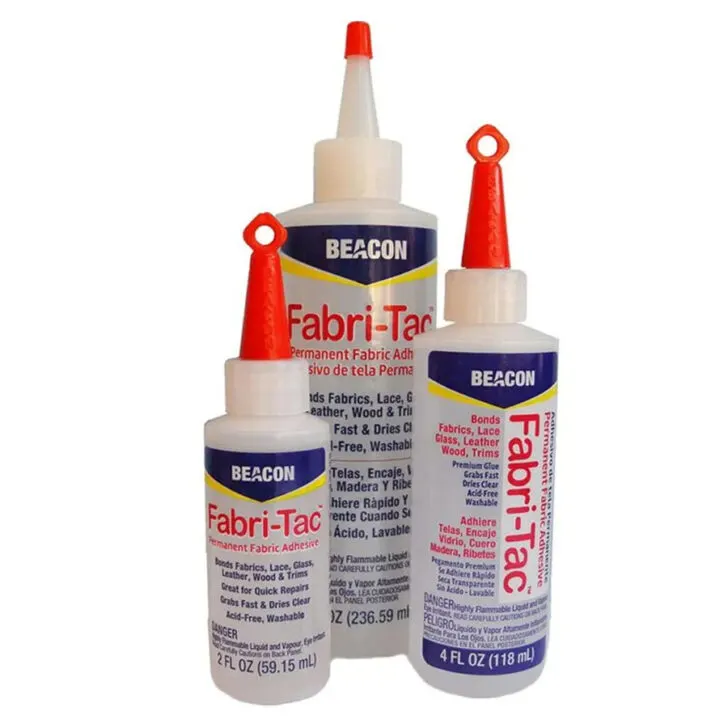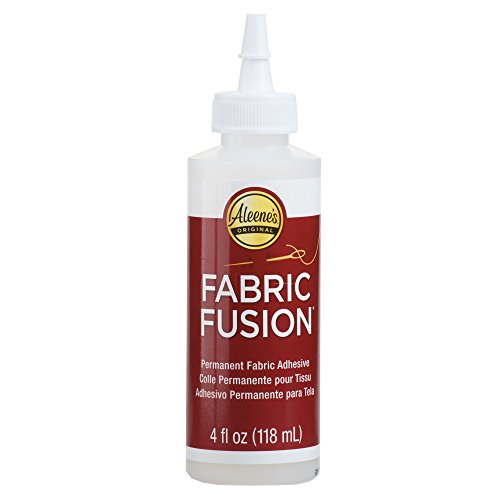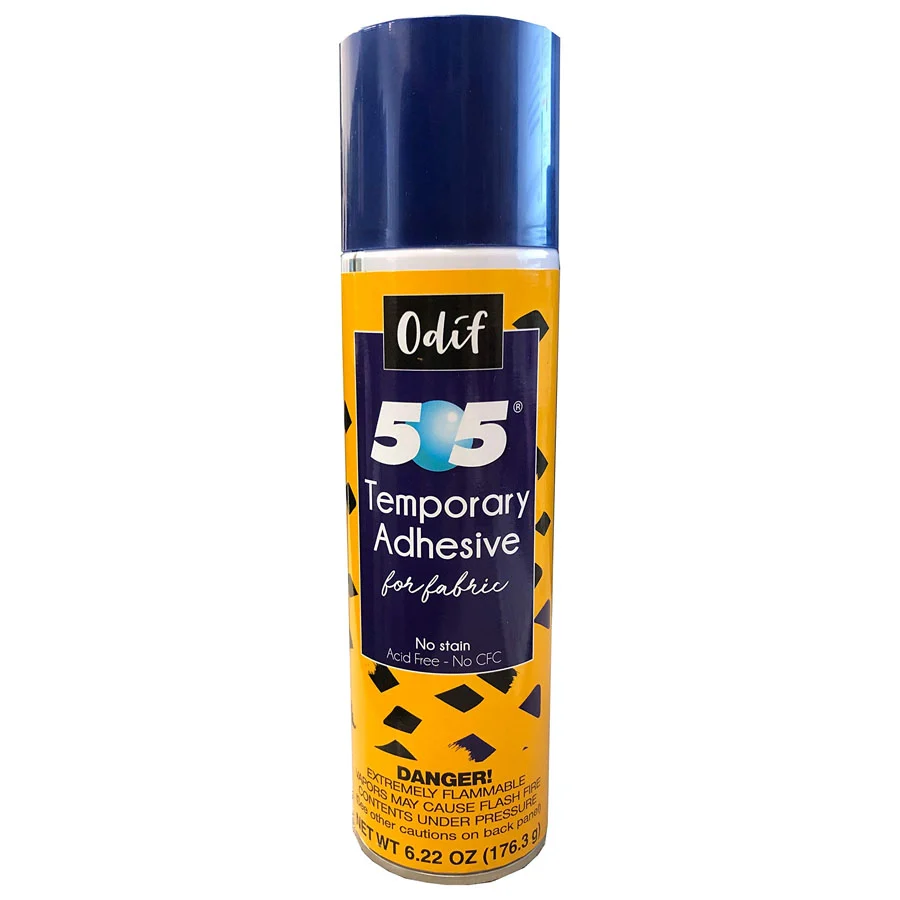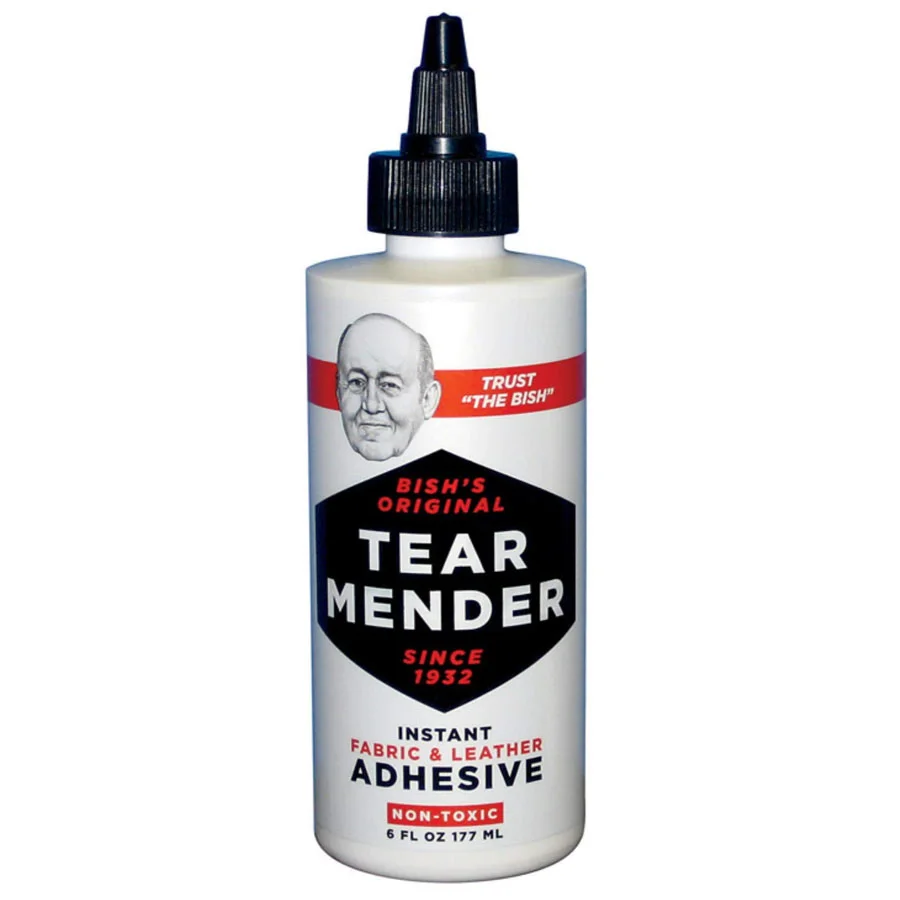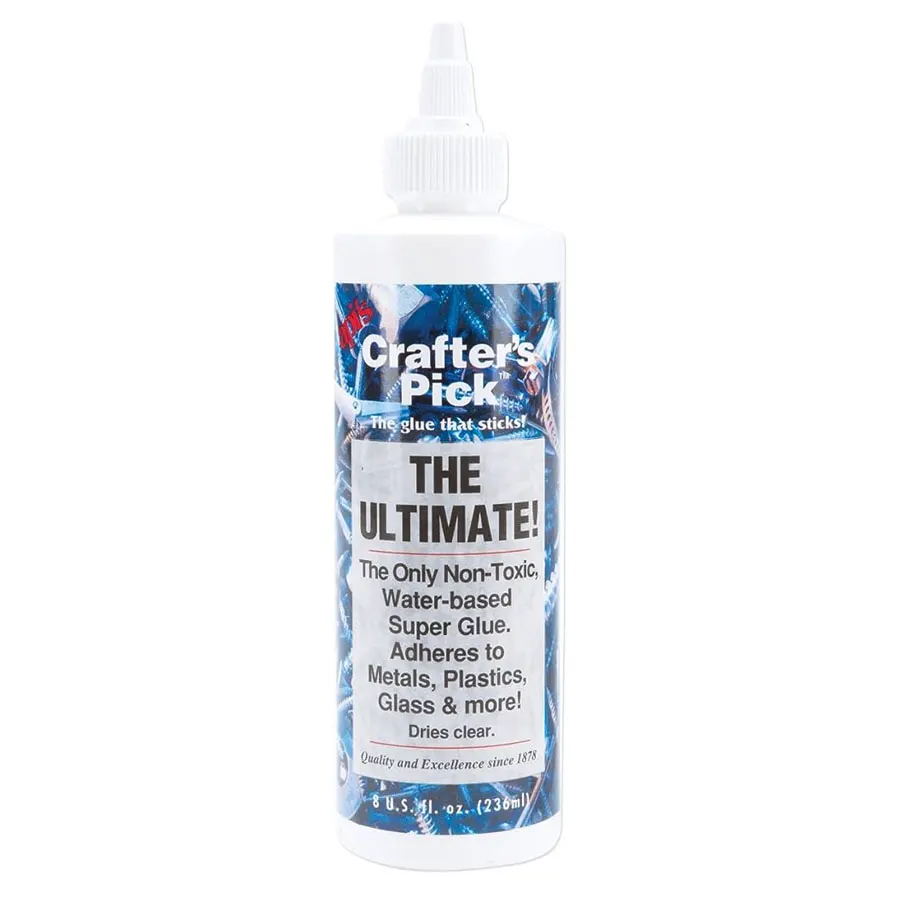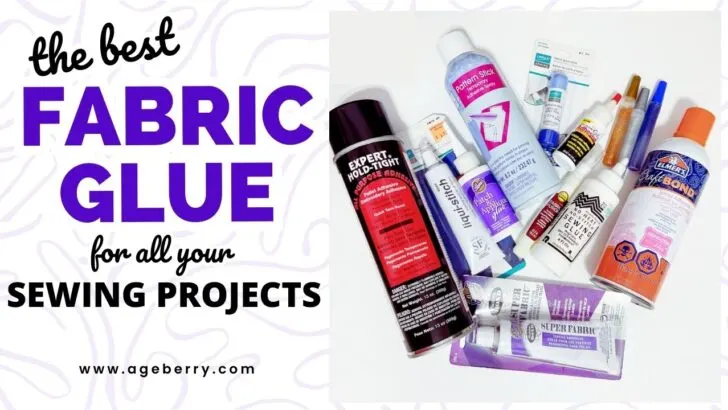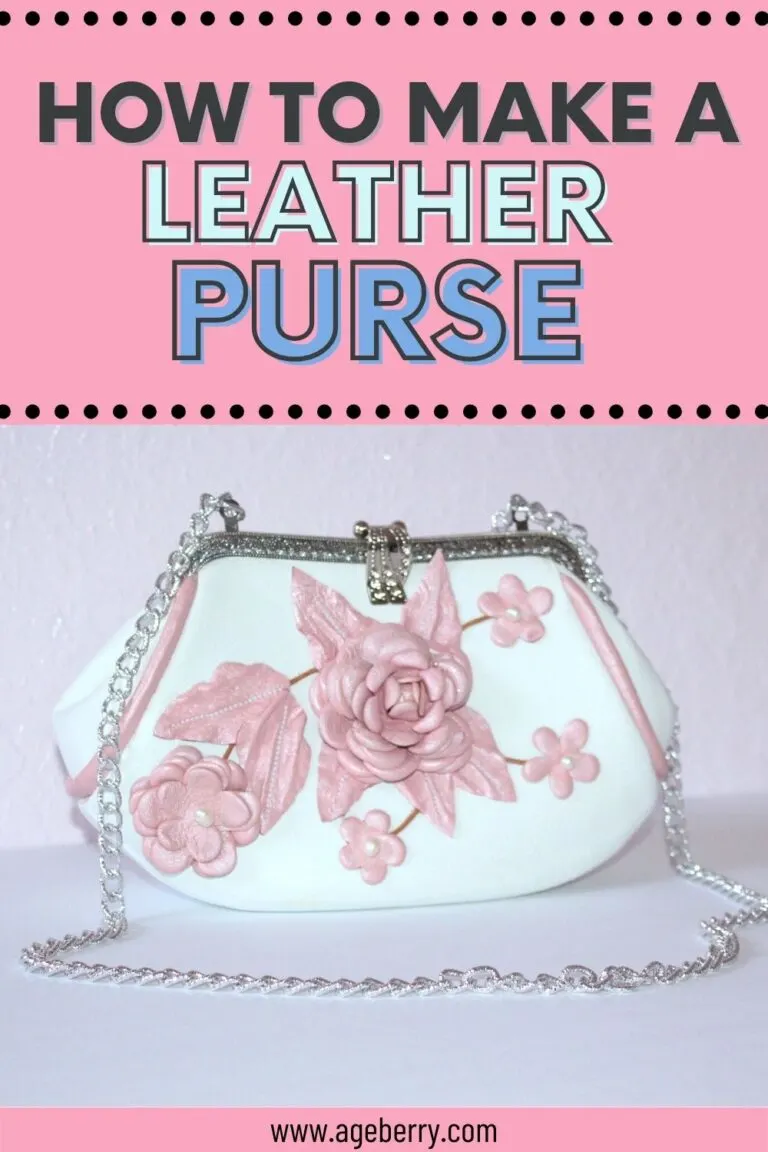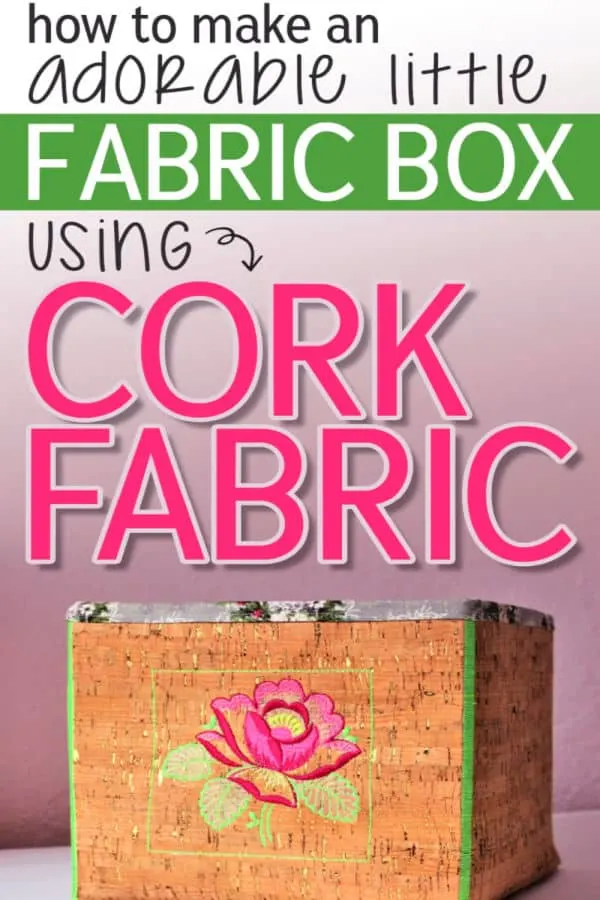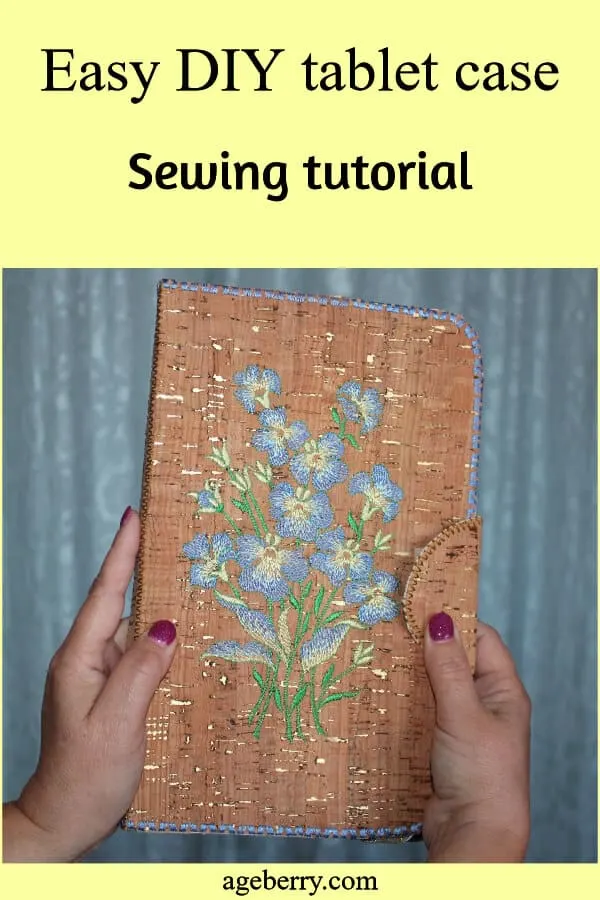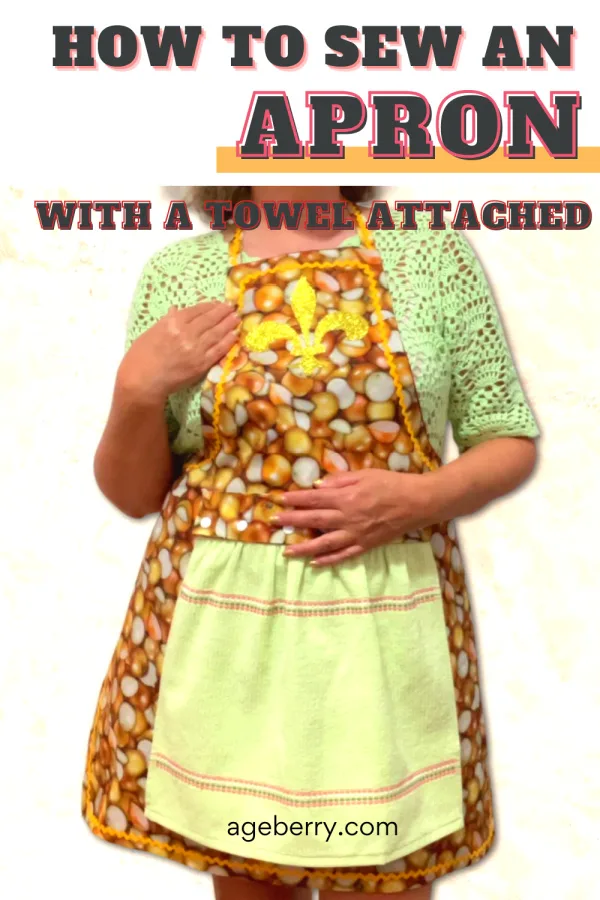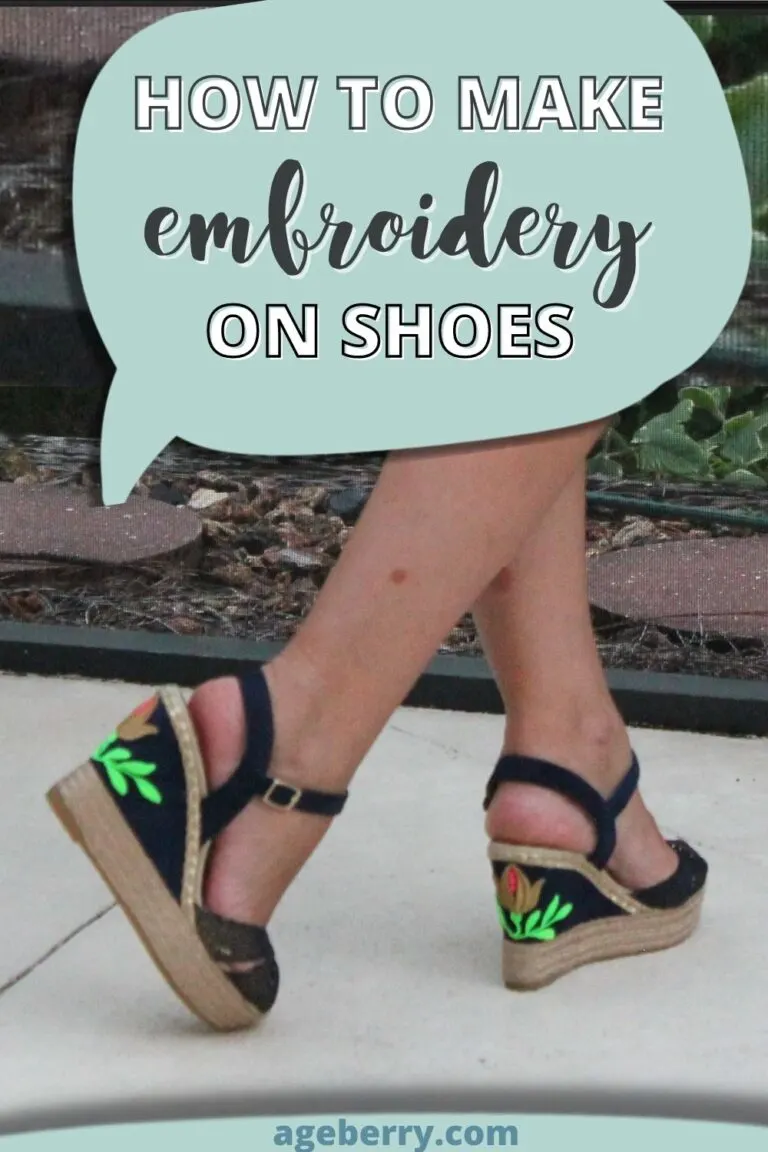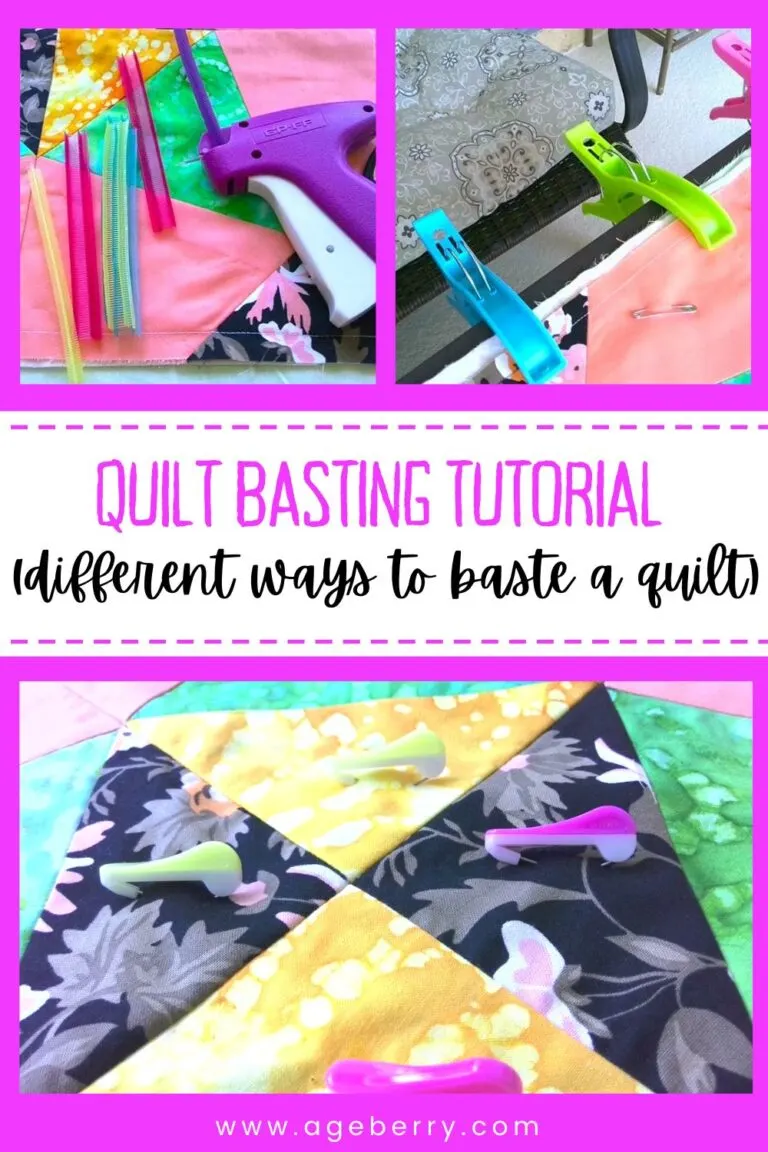Fabric glue is a must-have item for your sewing “toolkit.” As a quick and easy alternative to needle and thread, you can use fabric glue for many tasks, including mending garments or attaching embellishments. The key is using the right type of glue for the job. Here are my top recommendations for the best fabric glue for all your sewing projects!
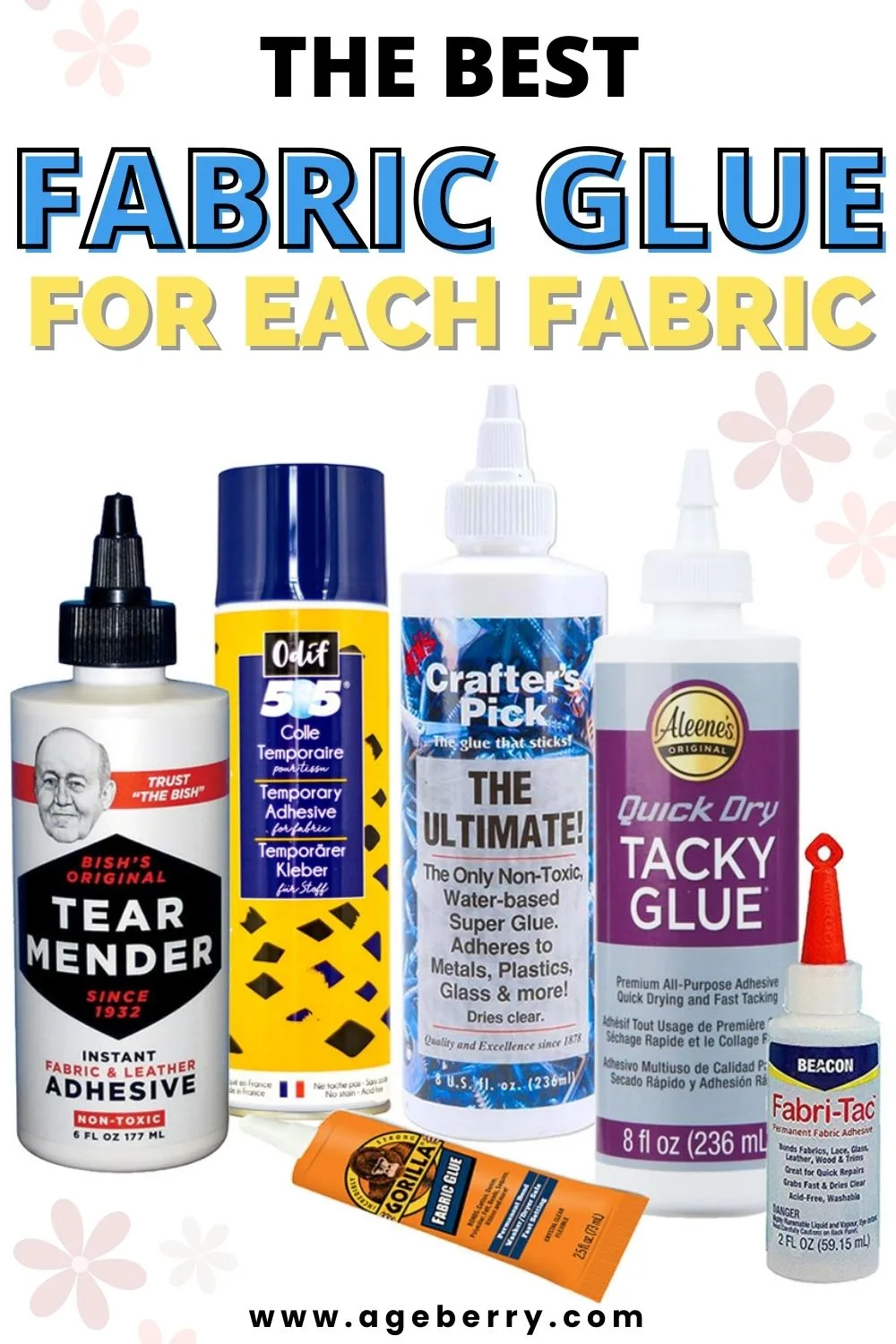
Over the years, I’ve used fabric glue in several different ways. I have found it helpful in repairing ripped garments, especially made from leather or vinyl, temporarily holding hems in place, attaching rhinestones, and everything in between. There’s no doubt that fabric glue is an essential element in my sewing arsenal.
I’ve also learned with experience that there are many types of fabric glue on the market for a reason. As nice as it would be, sadly, no single “all-purpose” adhesive can possibly cover all the tasks you may call on fabric glue to perform.
So, I’ve compiled a list of my favorite options based on how you would need to use them.
Note: Some of the links on this page are affiliate links. This means I will receive a commission if you order a product through one of my links. I only recommend products I believe in and use myself.
Best Types Of Fabric Glues According To Their Useful Features
Believe it or not, fabric glues are not created alike. The market is flooded with adhesives offering various features that benefit some projects but not others.
Before diving into my recommendations, I want to point out my all-around favorite fabric glue. I have worked with Beacon Fabri-Tac for years and have found it to be the best general-purpose option.
It works like a champ with many different materials, has a strong and flexible bond, and its gel-like texture dries clear. When you need durable and dependable fabric glue, try Beacon Fabri-Tac.
Now, I want to highlight some other terrific fabric glue options based on the essential qualities you may need.
As a passionate sewist, I am always on the lookout for the best fabric glue to use for my projects.
Some time ago, I purchased Aleene’s Platinum Bond Super Fabric Adhesive, which had received many positive reviews on Amazon and was even labeled as Amazon’s choice for fabric glues.
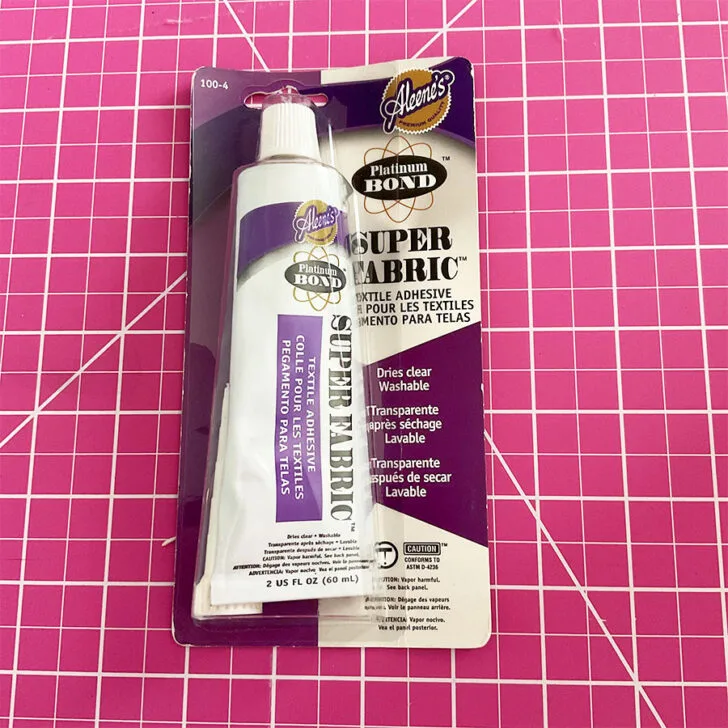
However, when I received the glue and read the text on the package, I was surprised to find out that it was TOXIC.
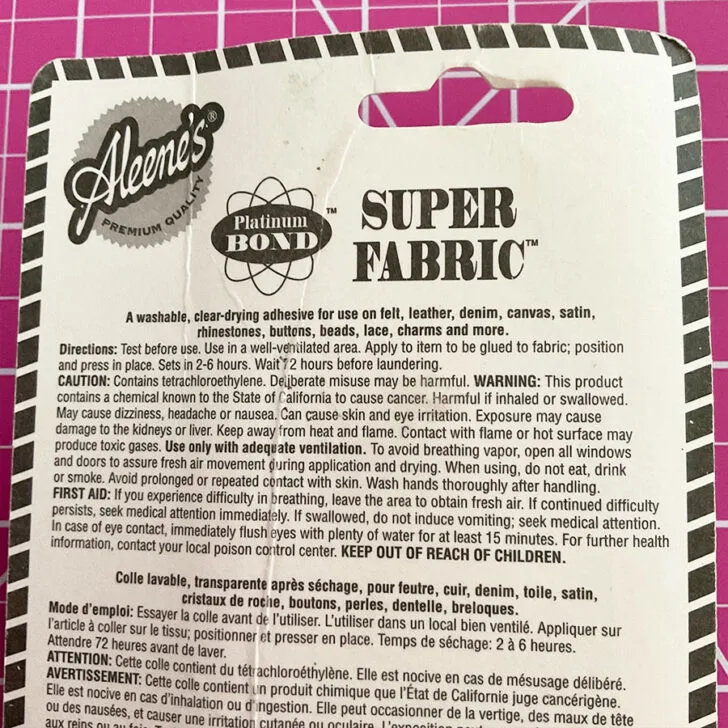
The glue contained a chemical that was known to cause cancer, and also dizziness, headache or nausea. The package also warned against inhaling the fumes and advised to open all windows and doors to avoid breathing vapor (really!?).
I was disappointed to learn that I couldn’t even return the glue, even though I had purchased it with Prime, due to its chemical content. This experience made me realize how important it is to be aware of the potential dangers of certain fabric glues.
Some solvent-based fabric glues can contain harmful chemicals, which can cause skin irritation, respiratory problems, and other health issues if inhaled or absorbed through the skin. Some of these fabric glues may also contain carcinogens.
So always check the label of any fabric glue you plan to use and look for any warnings or safety information. Consider using a non-toxic, often water-based fabric glue instead. These types of fabric glues are typically free from harmful chemicals and are safe for use on a wide variety of materials.
Not only are they safer for health and the environment, but they also work just as well as their toxic counterparts. I have found that non-toxic fabric glues, such as Aleene’s No-Sew Fabric Glue or Aleene’s Fabric Fusion, are great alternatives to toxic fabric glues.
So, while there are many great fabric glues on the market, it’s important to be aware of their potential toxicity and to choose non-toxic options whenever possible.
Permanent And Flexible Bond
There are times when you want fabric glue to simply hold fabric together long enough for you to sew it in place. And then there are those times, like mending a tear, when you want it to stay forever.
I highly recommend Aleene's Fabric Fusion. It’s a reliable choice for bonding fabrics and embellishments with a permanent bond.
- Permanent bond for fabrics and embellishments
- Non-toxic and machine washable
- Applies and dries clear
- May not be ideal for heavy-duty materials
- Dries shiny on some fabrics
- Potentially lesser bonding with elastic materials
The clear, water-based urethane adhesive is easy to apply, dries clear, and remains flexible after washing, which is a huge plus for us when working with various fabrics.
It’s one of the best sellers on the market, thanks to its proven record of creating a flexible and ultra-strong permanent adhesion.
Temporary Bond
Sometimes you may not want to create a permanent bond, but you’d rather use fabric glue to hold something in place until you sew it. Maybe that’s a hem where you want to avoid using pins, or maybe when using batting for your quilt to help save time on basting it.
Temporary fabric adhesive is a great option when you know you’ll be positioning and repositioning materials.
When you want a temporary bond that you can count on, I recommend Odif USA 505 Temporary Fabric Adhesive. This environmentally-friendly glue is spray adhesive and it’s an affordable option that has a lot going for it. I like to use it for holding fabric to stabilizers when doing machine embroidery projects. Here are some pros and cons to consider:
- Nontoxic and acid-free
- Adheres immediately
- Odorless, which makes it perfect for people sensitive to fumes
- Won’t gum up your sewing machine needles
- Can be easily repositioned and completely removed with soap and water
- Nozzle can get clogged unless you are diligent about cleaning it after use
- Can be very messy
- Can be difficult to control
When using Odif USA 505 Temporary Fabric Adhesive, protect your work surface and surrounding area, as the spray can easily get on everything around it. This can result in a sticky mess that's difficult to clean up.
Spray adhesives can be difficult to apply evenly, which can lead to uneven bonding and wrinkles in your fabric. This is especially true when working with delicate or lightweight fabrics, as the force of the spray can cause the fabric to shift or move around.
If you do choose to use a spray adhesive, be sure to work in a well-ventilated area and take the necessary precautions to protect your work surface and surrounding area.
I also like and use Aleene's No-Sew Fabric Glue. This nontoxic temporary fabric glue is backed by the brand’s reputation for high-quality crafting adhesives and works well (for example, for holding hems until you sew them).
Here are some things to consider if you’re comparing this product with the Odif temporary fabric glue above.
Pros:- Not permanent
- Maintains a good hold until washed
- Works with natural and synthetic fibers
- Can be used for trims, felt, ribbons, or to temporarily attach quilting projects
- Won’t gum up your sewing machine needles
- Nontoxic
- Product name may be a little misleading to make some people think it’s a permanent adhesive (many product reviews indicated this) - the hold is permanent ONLY UNTIL you wash the item.
- It may leave a visible residue on some fabrics. This can be especially problematic if you're working with light-colored or sheer fabrics, as the residue may be visible even after the glue was washed.
Best Washable Fabric Glue
Although most permanent fabric glues are washable, that’s not a feature that is present across the board.
For some sewists and DIYers, washable fabric glue is a must-have product due to its ability to withstand multiple laundering cycles while maintaining a strong bond between fabrics.
When I need a reliable and washable permanent bond, I like to use Allstar Innovations Secure Stitch Liquid Sewing Kit.
This kit contains seven pieces so that you can use it to tackle almost any job! You’ll receive two glue solutions (all-fabric and synthetic), two applicator bottles, two hem-measuring clips, and a silicone applicator.
You may also want to consider these benefits and drawbacks:
Pros:- Great for mending, hemming, and adding embellishments
- Quick-drying (sets in 15 minutes, cures in 24 hours)
- Dries clear
- Odorless
- The kit comes with a precision applicator, which makes it easy to apply the glue evenly and accurately. This is especially important when working with delicate or intricate designs.
- Although it sets in just 15 minutes, it isn’t fully cured (and washable) for 24 hours
Best Waterproof Fabric Glue
At first glance, washable and waterproof may sound like basically the same quality, but they’re different. All waterproof glues are washable, but not all washable glues are waterproof.
If you need a waterproof fabric glue that can withstand exposure to water without blinking (or melting away), try Gorilla Waterproof Fabric Glue Its unparalleled permanent bond is great for use on upholstery (that may get spills) and outdoor projects that may get rained on.
Here are a few more things to consider about Gorilla Waterproof Fabric Glue:
Pros:- Dries clear in 24 hours
- Washer and dryer safe
- Works with many different materials, including cotton, denim, felt, polyester, ribbon, sequins, beads, and more
- Says it dries quickly, but it takes 24 hours to fully cure
- Not labeled as non-toxic
- Not returnable on Amazon
Top Fabric Glue For Outdoor Use
What makes Tear Mender Instant Fabric and Leather Adhesive stand out from the crowd (other than being a favorite for 80+ years) as an outdoor fabric glue is its permanent, waterproof, UV-resistant bond.
Other glues may proclaim to be great outdoor options, but none of them truly compare to this one since you can confidently use it for indoor projects as well as outdoor cushions, tarps, tents, awnings, and much more.
Here are the pros and cons of Tear Mender Instant Fabric and Leather Adhesive:
Pros:- Natural and non-toxic formula
- Comes in an easy-to-use squeeze bottle
- Washer/dryer and dry clean safe once dry
- Provides a durable and flexible bond
- Affordable product
- Instant bond is truly quick-set (ready to use in 3 minutes or wash in only 15 minutes)
- Heat-resistant but not resistant to extreme cold temperatures
- Does not dry clear
The Best Clear Fabric Glue
One of the best options for clear fabric glue that will not yellow over time is Aleene's Original Tacky Glue. This glue is specifically formulated to dry clear and remain clear over time, making it an excellent choice for those looking for a long-lasting, non-yellowing clear glue.
Aleene's Original Tacky Glue is one of the most established and trusted products in crafting glues, and it’s original formula has withstood the test of time (and use).
Here are some things to note about Aleene's Original Tacky Glue:
Pros:- All-purpose adhesive with non-toxic formula
- Creates a strong, durable bond
- Dries clear and does not yellow over time
- Unwanted dabs can be cleaned up with soap and water before it dries
- Works with many materials but not all of them - check the label to make sure it works with the materials you’re using
- Has an odor that can bother some people
The Best Fabric Glue Options Based On Type Of Fabric
Since all fabrics have different qualities (texture, weight, etc), most fabric glues are formulated to only work well with a few materials. The best glue for the materials you’re working with is the one that will provide the look and hold you want to achieve.
Here are my recommendations if you’re looking for a fabric glue based on the type of material you’re working with:
Best Fabric Glue For Denim And Cotton
Cotton is a very adaptable and flexible material, and most fabric glues work well with it. Since denim is mostly made from cotton (sometimes with a small percentage of synthetic fibers), many fabric glues work well with denim too
When using glue on these materials, I recommend using options that also work for other materials (and their pros and cons are listed). Check out Beacon Fabri-Tac.
It creates a strong, flexible, and durable permanent bond on cotton and denim.
Best Glue For Vinyl Fabric
As a synthetic material, vinyl can be a little tricky to work with. The right glue for vinyl fabric will be one that can bond with its ultra-smooth surface. I recommend Loctite Vinyl Fabric & Plastic Repair Flexible Adhesive. It’s specifically formulated for repairing and mending flexible plastics like vinyl seats, cushions, tarps, and outdoor gear. This makes it an excellent choice for those looking to repair rips and tears in these types of materials.
Consider these features:
Pros:- Dries transparent clear
- Mends rips and tears
- Forms an ultra-strong, flexible permanent bond
- Sets quickly (10 minutes) and is fully cured in 24 hours
- Waterproof
- Seal might turn yellow with long-term UV exposure
- Not labeled as non-toxic
- Not returnable on Amazon
Best Fabric Glue For Felt
There aren’t a lot of glue options that work well with felt due to its fuzzy texture. However, Visbella 1 Min Fast Drying Liquid Stitch Fabric Adhesive Glue is specially formulated with natural latex to create a nontoxic formula that provides a strong bond with many natural and synthetic materials.
Here are some other things to consider about this adhesive:
Pros:- Dries clear with a strong and flexible permanent bond
- Non-toxic
- Washable (and dryable), waterproof, and heat-resistant
- Low odor once dry
- Works with many different materials, including flannel, cotton, denim, linen, suede, leather, silk, polyester, felt, nylon, and more
- Has a strong odor when the glue is still wet
Best Fabric Glue For Leather
In many ways, leather is unlike other materials and requires a special kind of glue that can create adhesion with its texture and weight. Fiebing's Leathercraft Cement is a water-based solution that dries quickly and creates a strong, permanent bond with leather.
Here are other things to know about Fiebing's Leathercraft Cement:
Pros:- Flexible bond once dry
- Non-toxic
- Affordable
- Creates durable adhesion
- May not work well on large tears
- Not machine washable
Best Options For Adhering Fabric To Other Materials
Crafting isn’t limited to gluing mending tears in fabric. What if you want to make a frame that attaches fabric to plastic piping or a purse that uses a metal frame?
Here are my recommendations for fabric glues that can bond fabric to other materials:
Best Glue For Fabric To Plastic, Wood, or Metal
My absolute favorite glue for all my household needs, including fabric projects, is The Ultimate! While it's not specifically marketed as a fabric glue, it works wonders on fabric, leather and all sorts of materials, including metals, plastics, and glass. What makes this glue even better is that it's water-based and non-toxic, making it safe for use around the house and for all my crafting needs.
This is a huge plus for me, as I'm always looking for ways to minimize my exposure to harmful chemicals. The glue dries clear, which means that it won't leave any unsightly residue on my projects, and the 8-ounce bottle is the perfect size for all my crafting needs.
I also used in the past E6000 Adhesive. It’s a good product that creates a durable hold between many different types of materials but the glue is toxic unfortunately so I stopped using it.
Pros:- Works with glass, plastics, wood, metal, ceramic, rubber, leather, vinyl, fabric, and more
- Safe to machine wash and dry once dry
- Dries clear
- Toxic
- Not returnable on Amazon
- Tube can be difficult to work with (squeeze out evenly, close tightly, etc.)
Best Glue For Fabric To Fabric
If you’re trying to bond one type of fabric with a very different type of fabric (ex: cotton to vinyl, etc.), I recommend either using Gorilla Waterproof Fabric Glue or The Ultimate! because both of these glues work well with many materials.
Fabric glue can be a huge time-saver and deliver professional-looking, effective results! I hope this post helps you find the best fabric glue for your project.
Did you find this tutorial helpful? If so, save this pin (see below) on your sewing board so you can come to the article later when you need this information on fabric glues , and follow me on Pinterest for more tips, tutorials, and inspiration!
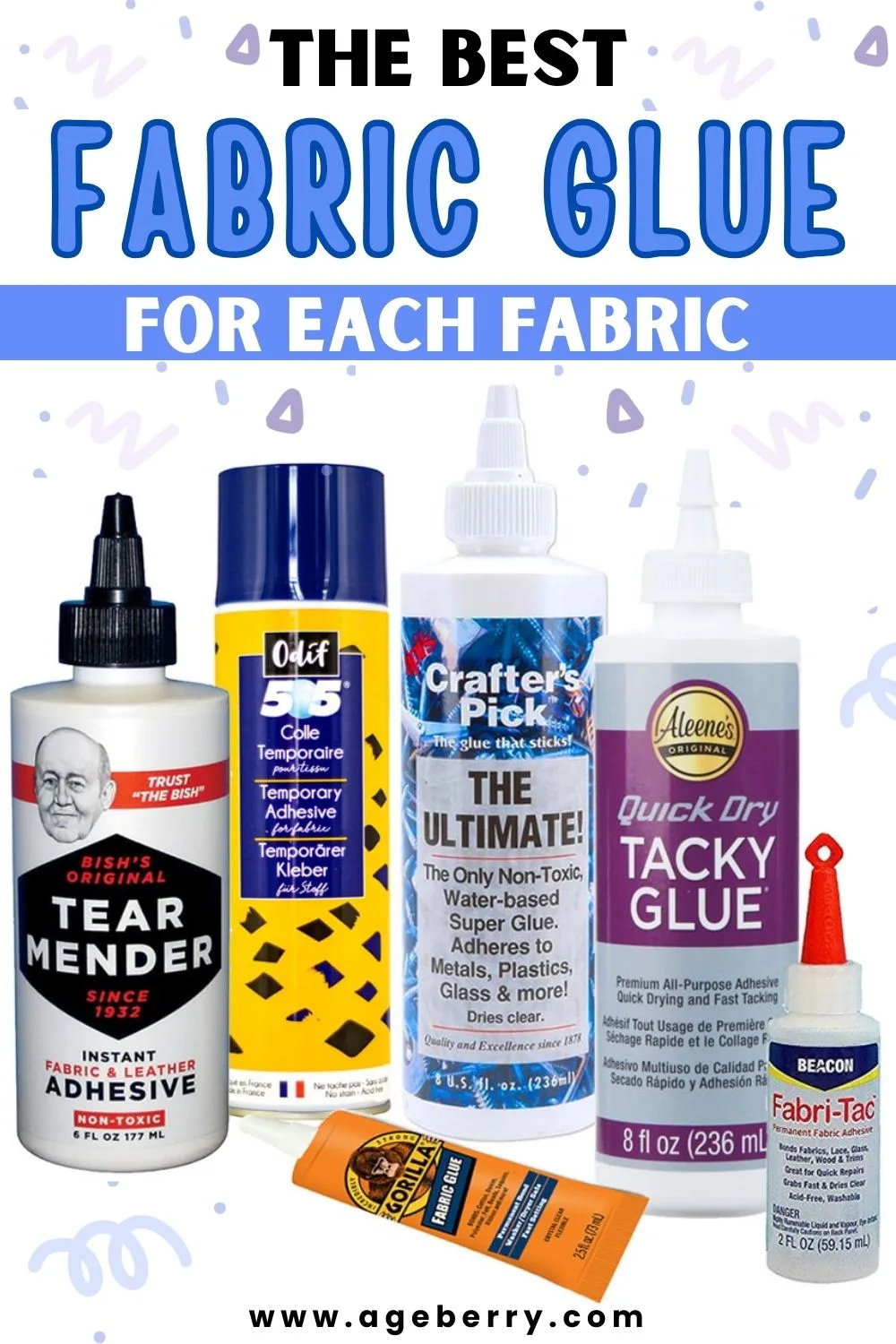
Thank you for reading this guide on how to choose the best fabric glue for every occasion. I hope you found it helpful! If you’re interested in learning more about fabric glues, be sure to check out my other post The Best Fabric Glue Options For All Your Sewing Projects.
My tutorials where I use fabric glue
latest posts
- Knot a Problem: Easy Ways to Secure Short Thread Ends
- Ever Tried This on Your Serger? This Differential Feed Feature Will Amaze You
- Ditch My Sewing Machine? Not in This Lifetime!
- Adorable DIY Needle Book | Easy Tutorial for Beginners
- Master the Seam Ripper: Your Ultimate Guide to Precision Stitch Removal
- Think You Know Zippers? This Installation Guide Might Surprise You
- Why Does Your Seam Ripper Have a Red Ball? Discover Its Purpose!
- Topstitching Troubles? This Simple Trick Will Turn It Around Instantly!
- How to Sew Shirring: A Step-by-Step Guide to Elastic Thread Gathering

